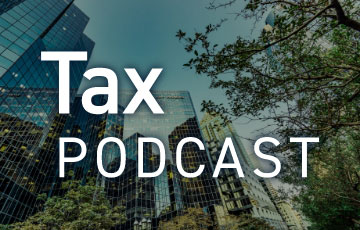Are Your Internet-Based Activities Unprotected?
State revenue departments are always looking to increase tax revenues through the interpretation and application of existing statutes and regulations. However, one federal law has been a thorn in the side for states. Limitations have been imposed by Congress that offer protection for sellers of tangible personal property. The Interstate Income Act of 1959, commonly known as Public Law 86-272, generally prohibits states from imposing income taxes on income derived from interstate commerce. This holds true if the state’s business activities are limited to solicitation of orders of tangible personal property that are sent outside the state for approval and, if approved, are filled by shipment or delivery from a point outside the state.
Many of our manufacturing clients have long relied on this federal law protection. The law has helped to control compliance costs and provided some certainty regarding where filing requirements exist. The Multi-State Tax Commission (MTC) revised its guidance on its interpretation of P.L. 86-272 last year, which states are now seriously considering and, in some cases, have formally adopted. The most concerning of the changes involve Internet activity.
Since this federal law was enacted in 1959, there was no specific intent on how it should be applied to Internet-based activities. It was common at that time to have sales representatives crossing state lines to meet with existing and potential customers. The business community was outraged that states were starting to impose income tax obligations merely due to such visits. The federal law was meant to be temporary but was never revisited.
More than 60 years later, our economy looks very different. We are primarily a service-based and e-commerce economy and states have moved to a market-based sourcing methodology; meaning tax revenues should come from businesses deriving revenue from their state. The states have since been quite successful in enforcing “economic nexus” on service providers, requiring an income tax filing even if no physical presence exists in the state. But sellers of tangible personal property still have potential protection through this old federal law. If states are successful in chipping away at the protection afforded, they will succeed in taxing most businesses that sell into the state, manufacturers included.
What are the Changes in Interpretation Adopted by the MTC?
Essentially any Internet activity will be deemed as occurring in the state of the customer. If this activity is solicitation-related (shopping cart type activities), it should still be protected. However, if Internet activities with customers are unrelated to solicitation, nexus likely exists. Examples provided by the MTC include post-sale chats with customers regarding technical, service or other non-sales matters. Posting open employment positions and receiving uploaded resumes will also jeopardize protection unless they are strictly sales-related positions. And of course, cookie nexus is a favorite topic in the state tax community. If cookies are placed on customers’ computers and used for anything other than shopping cart activities (inventory management, etc.), such activities will exceed the federal law protection.
Will These Changes in Interpretation be Upheld?
That remains to be seen and is up to the courts. The MTC’s interpretation is just that: an interpretation. But how many businesses in our current environment limit their activities to purely solicitation? Building customer loyalty and great customer service is increasingly important, and servicing customers stretches beyond solicitation activities.
How Cherry Bekaert Can Help
In summary, manufacturers should take these changes in interpretation seriously and it is increasingly important to be mindful of all state tax implications on your business. The last thing anyone needs are surprise assessments. A careful review of the entire supply chain and all customer interactions should be performed routinely to identify possible risks of exposure, with the goal of efficiently reducing or eliminating any identified risks.
Contact a member of our State & Local Tax team for guidance on this subject and other nexus concerns.






